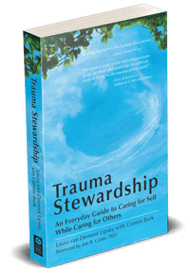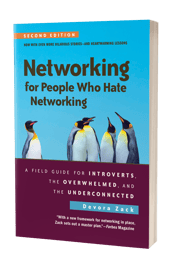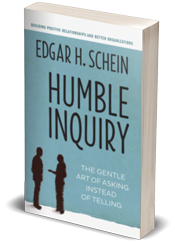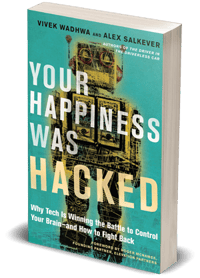Self-help and personal development books appear to be so ubiquitous that it can feel overwhelming and even impossible to find the right book for you. Whether you are altogether skeptical of self-help books or you read about personal development like we eat popcorn (that is, stuffing our faces by the handful), no one ever evolves alone, nor is there a one-size-fits-all equation for becoming the best version of yourself.
The personal development books on this list are varied and cover a diversity of situations that we all experience differently. From self-love to professional development to how to take care of yourself when you’ve dedicated your life to caring for others to tips and tricks on managing your relationship with technology and social media, these books are sure to make you completely rethink what self development means. You’re not alone on this journey of growth and realization; in fact, learning through others is part of caring for yourself. Each author meets you where you are and encourages you not to change who you are to fit a mold, but to grow your strengths and become the person you were meant to be.
The Body Is Not an Apology: The Power of Radical Self-Love
By Sonya Renee Taylor
Sonya Renee Taylor is the founder of The Body Is Not an Apology, a grassroots movement, organization, and  philosophy dedicated to radical self-love as the foundation for social justice and global transformation. Humans are a varied bunch, with all manner of beliefs, morals, and bodies, and systems of oppression thrive on our inability to make peace with bodies that are different from our own. Combatting this indoctrination that demands we learn to hate our bodies and those that are different from us requires that we return to the root of what we love about our bodies and our full selves. Far from being a book on one-dimensional self-acceptance and body positivity, The Body Is Not an Apology is a call to action for us to embrace a radical approach to practicing self-love, a practice that can strengthen our ability to respect diversity.
philosophy dedicated to radical self-love as the foundation for social justice and global transformation. Humans are a varied bunch, with all manner of beliefs, morals, and bodies, and systems of oppression thrive on our inability to make peace with bodies that are different from our own. Combatting this indoctrination that demands we learn to hate our bodies and those that are different from us requires that we return to the root of what we love about our bodies and our full selves. Far from being a book on one-dimensional self-acceptance and body positivity, The Body Is Not an Apology is a call to action for us to embrace a radical approach to practicing self-love, a practice that can strengthen our ability to respect diversity.
Taylor writes, “Radical self-love is not a destination you are trying to get to; it is who you already are, and it is already working tirelessly to guide your life. The question is how can you listen to it more distinctly, more often? Even over the blaring of constant body shame? How can you allow it to change your relationship with your body and your world? And how can that change ripple throughout the entire planet?” With a toolkit and engaging and poetic language, this book contains a powerful message that goes beyond the individualism of many self-help books and ties our own personal development journey to the fate of the humanity of others. In learning to love ourselves more radically and fully, we can learn to share that same love with others.
The Body Is Not an Apology | Amazon | Barnes and Noble | Indiebound | BK Bookstore | Audible
Trauma Stewardship: An Everyday Guide to Caring for Self While Caring for Others
By Laura van Dernoot Lipsky with Connie Burk
 Laura Van Dernoot Lipsky is the founder and director of The Trauma Stewardship Institute, and she has dedicated the last three decades of her life to trauma exposure. This work involves increasing awareness and support for those working in trauma care and empowering them to take care of themselves while taking care of others. She writes in her best-selling book, Trauma Stewardship, “While our deepest instincts are ultimately to do what is best for ourselves, sometimes we need guidance to recognize when we’ve wandered away from our truest selves, and lessons to learn how to regain our bearings.”
Laura Van Dernoot Lipsky is the founder and director of The Trauma Stewardship Institute, and she has dedicated the last three decades of her life to trauma exposure. This work involves increasing awareness and support for those working in trauma care and empowering them to take care of themselves while taking care of others. She writes in her best-selling book, Trauma Stewardship, “While our deepest instincts are ultimately to do what is best for ourselves, sometimes we need guidance to recognize when we’ve wandered away from our truest selves, and lessons to learn how to regain our bearings.”
As a bonus, we wanted to include another book by Van Dernoot Lipsky as a necessary companion: The Age of Overwhelm. This book covers how to take care of yourself when the cards, world, and energies of the universe make it feel like there is so much injustice and work to be done. Rather than sacrifice our own well-being for the greater good, Lipsky argues that we have to take a both/and approach—it is in caring for ourselves that we are best equipped to tackle the overwhelm of the world. She writes, “The more we feel overwhelm starting to set in, the more focused and diligent we need to be with ourselves in having a plan. When we’re overwhelmed, we must, must determine how to metabolize and internally transform whatever is arising within us. Otherwise, it erodes us, or we cause external harm, or both.”
Trauma Stewardship | Amazon | Barnes and Noble | Indiebound | BK Bookstore | Audible
The Age of Overwhelm | Amazon | Barnes and Noble | Indiebound | BK Bookstore
Your Happiness Was Hacked: Why Tech Is Winning the Battle to Control Your Brain—and How to Fight Back
By Vivek Wadwha and Alex Salkever
This might sound intimately familiar: Advances in technology are supposed to make people’s lives easier and, in turn, make them happier, but they often produce the opposite effect. Constant technology exposure can diminish empathy, and seeing a constant stream of others’ accomplishments and smiling pictures on social media can lead to anxiety in observers who think their lives must stink in comparison. Taking advantage of vulnerabilities in human brain function, tech companies entice us to overdose on technology interaction. This damages our lives, work, families, and friendships. Swipe-driven dating apps train us to evaluate people like products, diminishing our relationships. At work, we check our email 77 times a day on average, ruining our concentration. At home, light from our screens is contributing to epidemic sleep deprivation.
But we can reclaim our lives without dismissing technology. The authors explain how to avoid getting hooked on tech and how to define and control the roles that tech is playing and could play in our lives. Additionally, they provide a guide to technological and personal tools for regaining control. This easy read turns personal observation into a handy action guide to adapting to our new reality of omnipresent technology.
Your Happiness Was Hacked | Amazon | Barnes and Noble | Indiebound | BK Bookstore | Audible
Networking for People Who Hate Networking: A Field Guide for Introverts, the Overwhelmed, and the Underconnected
By Devora Zack
 Networking is widely regarded as one of the most important and effective ways to advance your career and increase influence—but it doesn’t come easy to everyone. Devora Zack, self-identified introvert and best-selling author, writes in Networking for People Who Hate Networking, “In my experience, people who proclaim that they hate networking also believe they are not good at it. In fact, the reverse is true. You have the raw materials to be a stellar networker. You are simply following the wrong rules. Standard networking advice fails you, so you assume you fail at networking. Plus, you hate it.”
Networking is widely regarded as one of the most important and effective ways to advance your career and increase influence—but it doesn’t come easy to everyone. Devora Zack, self-identified introvert and best-selling author, writes in Networking for People Who Hate Networking, “In my experience, people who proclaim that they hate networking also believe they are not good at it. In fact, the reverse is true. You have the raw materials to be a stellar networker. You are simply following the wrong rules. Standard networking advice fails you, so you assume you fail at networking. Plus, you hate it.”
Zack’s book highlights how introverts can overcome their disdain of networking and apply their strengths to effectively connect with others. The key isn’t turning into an extrovert, but rather, tailoring your networking strategies so you don’t feel drained or like you’re faking it, which inevitably results in unsuccessful and exhausting networking events. The first step is recognizing, naming, and honing your strengths and communicating them in a way that feels natural for you—and Zack shows you how to do just that. She writes, “Whether you love, tolerate, or hate networking is directly correlated to your inner monologue. It is never too late to rewire your brain! All you need is a small set of pliers and a dose of willpower.”
Networking for People Who Hate Networking | Amazon | Barnes and Noble | Indiebound | BK Bookstore | Audible
Humble Inquiry: The Gentle Art of Asking Instead of Telling
By Edgar H. Schein

Our final self-development book recommendation is one we’ve featured many times on this blog: Humble Inquiry, Edgar Schein’s classic best seller that inspired Humble Leadership and Humble Consulting. The idea behind humble inquiry is that people should prioritize listening instead of talking and asking instead of telling.
By bringing humility into the equation, people can grow by learning more about themselves and others. And that doesn’t just apply to our communication with others, but also to how we adapt and grow in the communities and organizations we live and work in. Many incisive self-help books and frameworks agree that when you reflect and learn from spaces and people outside of yourself, growth naturally ensues. Reflecting and learning from a place of humility also undergirds your chances at being successful and thoughtful on this journey. Schein elaborates, “One way to learn to reflect is to apply Humble Inquiry to ourselves. Before leaping into action, we can ask ourselves: What is going on here? What would be the appropriate thing to do? What am I thinking and feeling and wanting?” In other words, understanding yourself is a path to understanding others—and that path is a two-way street.
Humble Inquiry | Amazon | Barnes and Noble | Indiebound | BK Bookstore | Audible




